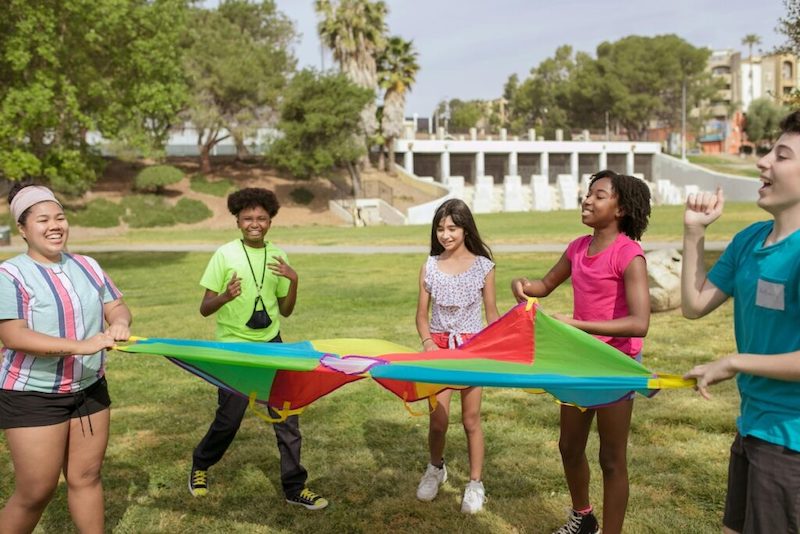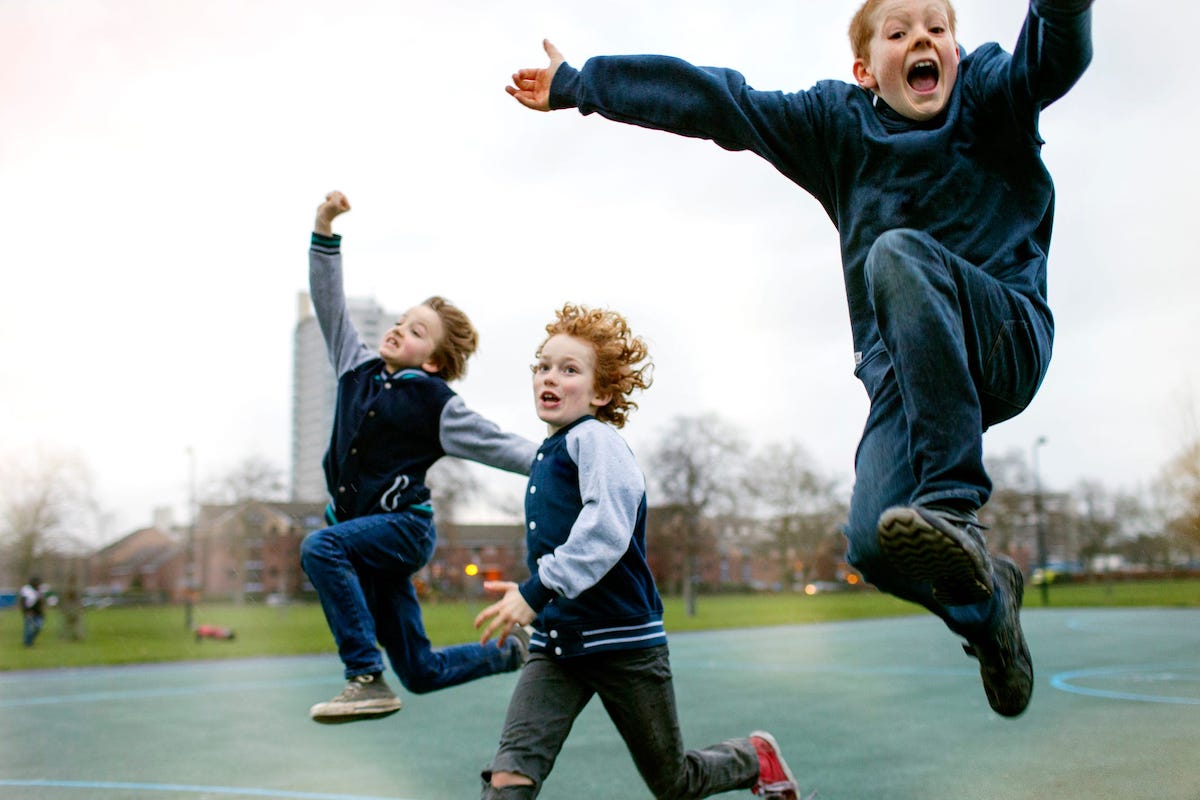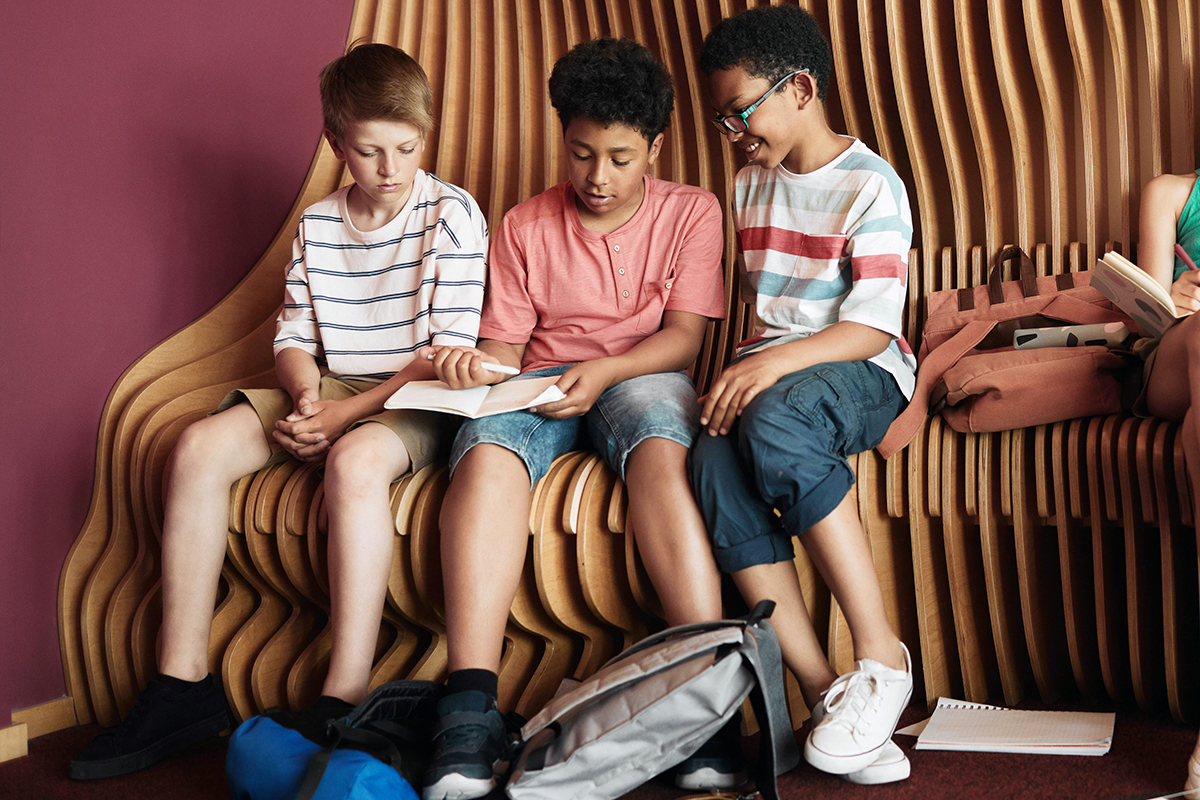From a logistical standpoint, especially if all of the adults in the household work, the summer can be a nightmare. Sure, our kids love it, and we love them. But we need child care! Many times, I have bemoaned the lack of year-round school.
The obvious approach to the summer is some kind of camp. That realization has its own challenges. Camp costs money. In some places it requires sign-up timing so precise that unless you’re programming your own computer bot to do it for you, you’re out of luck. There are lots of different camps. Which one is best?
I will not solve all your camp problems today — each family’s circumstances are so specific that I cannot possibly tell you exactly what to do. Instead, I want to talk about a few general questions: How can we improve the nightmare logistics, how should you think about choosing camp in general, and how might camp affect your child?
How do you manage all the summer logistics?
The two times in the year that I hear the most about mismatched mental load in the family are the winter holidays and the summer. It is too often the case that one household adult — often mom, in heterosexual couples — holds all the responsibility here. Summer planning can be especially galling because it is surprisingly complex. The parent who isn’t doing the scheduling may simply have no idea of what is going on.
“Just send them to camp!” is an incredibly unhelpful statement from your partner when you have spent three weeks agonizing over how to fit together child care in an affordable way and frantically clicking “Sign up” the moment that registration opens.

The other problem is that … sometimes we forget. There is a lot going on. Summer planning is not necessarily top of mind in the winter or even early spring. By the time we remember, the choices are curtailed, our kids are mad, and it’s all a mess.
This is one of many places in running your family in which you can have a better experience by putting in more work up front for less work and happier outcomes later. That work means advance planning. Right now — literally, after you read this — schedule a planning session for next summer in January (or possibly October if you’re thinking about sleepaway camp). Yes, I know I sound a little insane. Trust me, it’s a good idea.
Invite your partner if you have one. I’d schedule an hour to sit down with the calendar, with your recollections of the prior summer, and work on a plan. If there are open questions you need to answer, make a plan for answering them (and possibly a follow-up meeting). If there are dates you need to sign up by, put them in the calendar. This meeting is also an opportunity to decide who will do the work, and whether there is a way to split it. If you do choose to share the load, think about the principle of total responsibility transfer — split up whole tasks, not pieces of them.
Basically: treat summer camp sign-ups like you would a project at your job.
This approach, as neurotic as it may seem, has two advantages. First, it forces some sharing of the work and mental load, at least in the planning. Second, it puts the work up front at a time that you’re ready to do it, rather than at the last minute, when you probably have something else to do.
What does the data say about the benefits of summer camp?
The planning discussion may focus on logistics, but it can be helpful to start with the broader question of: What are we trying to get out of this summer? I do not mean “what are we trying to accomplish?” as if the summer is yet another opportunity to optimize our kids. I mean something like: What experience are we trying to have? A little deliberate thinking here can go a long way in helping you make decisions that impact not only your kids but family logistics. This is also a place where data can (sometimes) help.
Below are a few possible benefits of summer camp and what we see in the data. You may have other summer goals than what I outline below. These are three common ones (where there is some data). The point is simply that if you give this some thought up front, you may get to a happier place.
Freedom and independence
The school year is very structured for many kids, and there are increasing calls for more freedom and independence in childhood (see, e.g., Jonathan Haidt’s book). Kids may need more opportunities to take risks, be bored, etc. We do not have concrete data linking this kind of freedom to any particular outcomes, but researchers have speculated that lack of independence contributes to mental health issues.
The summer can be a time to give kids this kind of broad freedom. In the current environment, providing that freedom probably requires some scaffolding and possibly coordination with other parents. Which may feel like it defeats the point? But baby steps.
Sense of belonging, alternative peer group
The most consistent data we have about the value of camp is around socioemotional benefits. This evidence echoes what we see about extracurricular activities in general. The data shows that the most consistent value of any of these out-of-school activities is in developing a sense of belonging. That is: both extracurriculars and summer activities can give kids a different peer group to connect with and an opportunity to find something they love in a new environment.
In the case of camp, the best evidence comes from studies of children who, for various reasons, may be feeling less connected in their school environment or are struggling in other ways. In a lot of cases, this focuses on children with health issues. One example is a 2005 study of 34 children with cancer who attended an oncology summer camp. At the end of camp, the participants reported feeling more similar to their camp peers than their school peers, and there was a resulting improvement in “psychosocial” outcomes — self-acceptance improved, and loneliness declined.
We see similar results for kids with other conditions, including diabetes (this result goes back to the 1970s), visual impairments, and general pediatric medical issues. In all these cases, attending a camp with children who had a similar condition seemed to increase campers’ self-esteem and self-acceptance.
These results extend to kids who may feel isolated for other reasons. One study of children attending an academically focused camp interviewed kids at the start and end of the three-week experience. The authors found that the campers improved in their feelings of social comfort and their emotional stability, which they interpret as reflecting the kids’ having connected better socially with this new peer group. Interestingly, they find no evidence of lower confidence in academic abilities, even though the students are exposed to a new set of academically strong peers.
In light of the literature on extracurriculars, this isn’t surprising — those findings are very similar. When extracurricular activities are introduced in schools, there are socioemotional benefits. As I’ve talked about elsewhere, those benefits are the argument for these activities, as opposed to the argument that you need to play travel sports because it’s the path to the Olympics.
What’s the concrete advice here? Summer camp is an opportunity to identify a set of peers your child might connect with outside of school. This could be especially valuable if your child is having a tough time socially during the school year.
Educational catch-up or enrichment
A last common use for the summer is educational catch-up or enrichment. One of the most consistent findings in the literature on education is that tutoring (one-on-one or in a small group) can be very effective for enhancing learning. During the school year, it may be hard to find time for this, so the summer is another option.
I would draw a bit of a line here between catch-up and enrichment. For kids who are struggling, the summer can be a less pressured opportunity to reset and get back on track with their peers. There may be good reasons to do this even if it isn’t your child’s first-choice use of their time. A core part of parenting, as we all know, is balancing what our kids want and what we know they need.
When we’re talking about summer activities designed to enrich or push our kids ahead, it may be more appropriate to think about them in the overall camp language above. If your child would love math camp and find their people there, that’s awesome. But if this isn’t their preference, it may be worth giving that more weight (shout-out here to Jennifer Wallace’s excellent book Never Enough).
What about sleepaway camp?
The studies above generally combine both day camp and sleepaway camp. Sleepaway camp has its own set of considerations — financial, practical, emotional — but based on the data, there does seem to be something about the immersive experience of this kind of camp that reinforces the benefits. There is a lot to consider if this is on the table for your family, but one very common worry is that kids will be homesick.
The glass half empty from the literature is that they probably will be. Nearly all kids get homesick to some extent. Younger kids and those away for the first time seem to struggle more. The glass half full is that there are evidence-based approaches to homesickness — trying short stints in advance, distracting kids at camp, providing counseling when they are sad — that can help. If you’re worried but are intrigued by the idea of sleepaway camp, ask the camp how they deal with this. They will definitely have an answer.
The bottom line
- Set up summer-planning meetings (with your partner if you have one) well in advance. Think about what you want your summer to look like, your child care needs, and how summer camp may fit into your plans.
- Summer camp can be great for kids, especially in drawing connections to peers outside of school.
- Kids will likely be homesick at sleepaway camp, and that’s okay. Talk to your camp about their approach if you have concerns.
















Log in
Depending on the number of kids you have it sometimes is at least as affordable and certainly easier to hire a sitter for the summer and there are many college students looking for work. We live in the city but manage to fit a small above ground pool on our patio for the summer and young kids love even a small pool! I still send my daughter to some camps because she loves them but my middle kiddo is a homebody and is happy to stay home with the sitter and my youngest. They go to the playground in the neighborhood, play in the yard and play in the pool. I feel like this option is often missed! I grew up going to a pool club with a sitter and they are not all very expensive so this can be another way to have a separate set of peers and have a less hectic summer.
Synchronicity! I read your email about this post literally right after I hit publish on a Notion template for summer camp planning. I built this for my husband and I to collaborate for this summer, and it really did help share the load!
If anyone’s interested you can check it out here: https://plandothrive.gumroad.com/l/summercampplanner
So did I screw up my first year of summer camp for my 6-year-old going into first grade because I signed her up for about five different camps that are 1 to 2 weeks each because I wanted to see what kinds of camps she likes but will prevent her from having a consistent set of peers for more than 1 or 2 weeks at a time? Now I’m feeling guilty. Not to mention the crazy logistics involved with so many camps. But we just don’t have a sense of what she likes yet and figured we could use this summer as an experiment for next summer.
She will be fine and you’re doing great!
Oh gosh no you didn’t screw up. She’ll probably love some of them and like most of them.
As the owner and director of an independent summer camp, I can share that many overnight camps want to make the experience affordable, and many offer scholarships or discounts. As an example, we offer educator and public service discounts and scholarships based on need and hardship. When contemplating a residential experience and pricing, consider what it costs to feed and entertain your child by the week. In addition, choosing a camp that is accredited by the American Camp Association provides some assurance that the camp has a basic set of standards for safety, background checks and other guidelines. Lastly, think about an away experience as practice for leaving home. At a well-run summer camp, children receive support and tools for managing missing home and parents can rest easy knowing that their child is learning, growing and cared for by trained staff and adults who care about their well-being and development. Summer camp gives children the tools for adulthood.
Some real numbers: in my area, day camp is around $450 per WEEK give or take. The hours are generally 9 or 9:30 to 3 or 3:30 at the latest. HOW are people doing this, seriously? A babysitter on top of the camp just so you can work another 2 hours at the end of the day? And then how do you pay for it all? I can’t care about the quality and type of camp at this point; just getting through summer year after year is pure survival.
A lot of our cams come with an aftercare option which is vital as you describe but comes with another price tag making a lot of the camps in our area (DC) more like 600 or $650 a week. And if you wait till January to have this conversation, you’ll be behind. One of the camps here registers in mid-november and we totally missed family camp sign up which was also in November. So really you might need to talk about this in October even if you’re not doing sleep away camp
https://dcpsstrong.com/summer/
It’s free!
That’s awesome! We are actually in Maryland up in Rockville so that would be really far drive for us which plays into the logistics/commuting part of child care.
Oh – it’s only for DC residents
We used the general approach described in Family Firm to plan my late elementary children’s summer experience by prioritizing activities. The benefits of this became clear when we found that the deadlines for some of the mid-list options occurred before tryouts open for the high-priority opportunities. We were able to talk with the kids and explain that if they really wanted to do X, then that would mean skipping Y and accepting that if they didn’t make it into X then they would have to settle for Z instead.